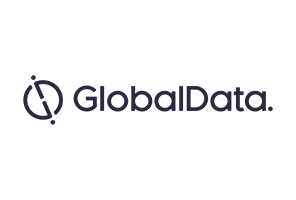On 9 August, Melinta Therapeutics and Cempra Pharmaceuticals jointly announced a merger agreement that will result in Melinta’s shareholders owning 52% of the new company.
GlobalData believes their combined product portfolio and discovery platform, headlined by Melinta’s recently approved Baxdela (delafloxacin) and Cempra’s Phase III asset solithromycin, will be well-positioned to compete in the antibiotics and acute care space for the foreseeable future.
For Cempra, the deal represents a much-needed victory, as the clinical-stage pharmaceutical company suffered setbacks with both the US Food and Drug Administration (FDA) in December 2016 and the Europeans Medicines Agency (EMA) in March 2017 due to concerns surrounding the safety of solithromycin, which has completed Phase III studies.
As a next-generation macrolide (specifically, a fluoroketolide), solithromycin inhibits bacterial protein synthesis by directly binding to two sites on the large 50S subunit of the ribosome in a manner that allows it to regain potent activity against clinically relevant, macrolide-resistant Gram-positive and Gram-negative organisms.
Despite the urgent need for novel antibiotics with potent activity against drug-resistant pathogens, key opinion leaders (KOL) interviewed by GlobalData cited solithromycin’s structural similarity to Sanofi’s Ketek (telithromycin), a now withdrawn ketolide antibiotic that possessed a controversial safety record including cases of severe hepatotoxicity, as the key reason behind the aforementioned safety concerns. The merger with Melinta should aid in the search for a developmental partner to help fund the additional research needed to obtain approval.
In June, Melinta’s Baxdela received FDA approval for the treatment of adults with acute bacterial skin and skin structure infections (ABSSSI) caused by susceptible bacteria, including methicillin-resistant Staphylococcus aureus (MRSA).

US Tariffs are shifting - will you react or anticipate?
Don’t let policy changes catch you off guard. Stay proactive with real-time data and expert analysis.
By GlobalDataA fluoroquinolone, Baxdela acts by inhibiting key enzymes DNA gyrase and topoisomerase IV, thwarting bacterial replication. However, unlike most quinolones, Baxdela displays equal affinity for both enzymes, an attribute that may lower the threat of treatment-emergent resistance.
Riding this recent wave of success, Melinta hopes the merger will help to strengthen its ability to commercialise Baxdela for ABSSSIs, as well as to finance eventual label expansions into community-acquired bacterial pneumonia (CABP) and complicated urinary tract infections (cUTI).
The ability of both Baxdela and solithromycin to be administered either orally or intravenously, combined with their activity against difficult-to-treat pathogens, represents key advantages over many of the antibiotics most frequently prescribed to treat ABSSSIs and CABP, respectively.
Nevertheless, antibiotic stewardship programmes, driven by the growing fear of antibiotic resistance, will likely exclude them from front-line use and limit their commercial potential.
GlobalData believes that the new company resulting from the Melinta-Cempra merger must prioritise physician education and employ shrewd pricing strategies to achieve adequate return on investment (ROI) in a highly genericised antibiotics marketplace.




